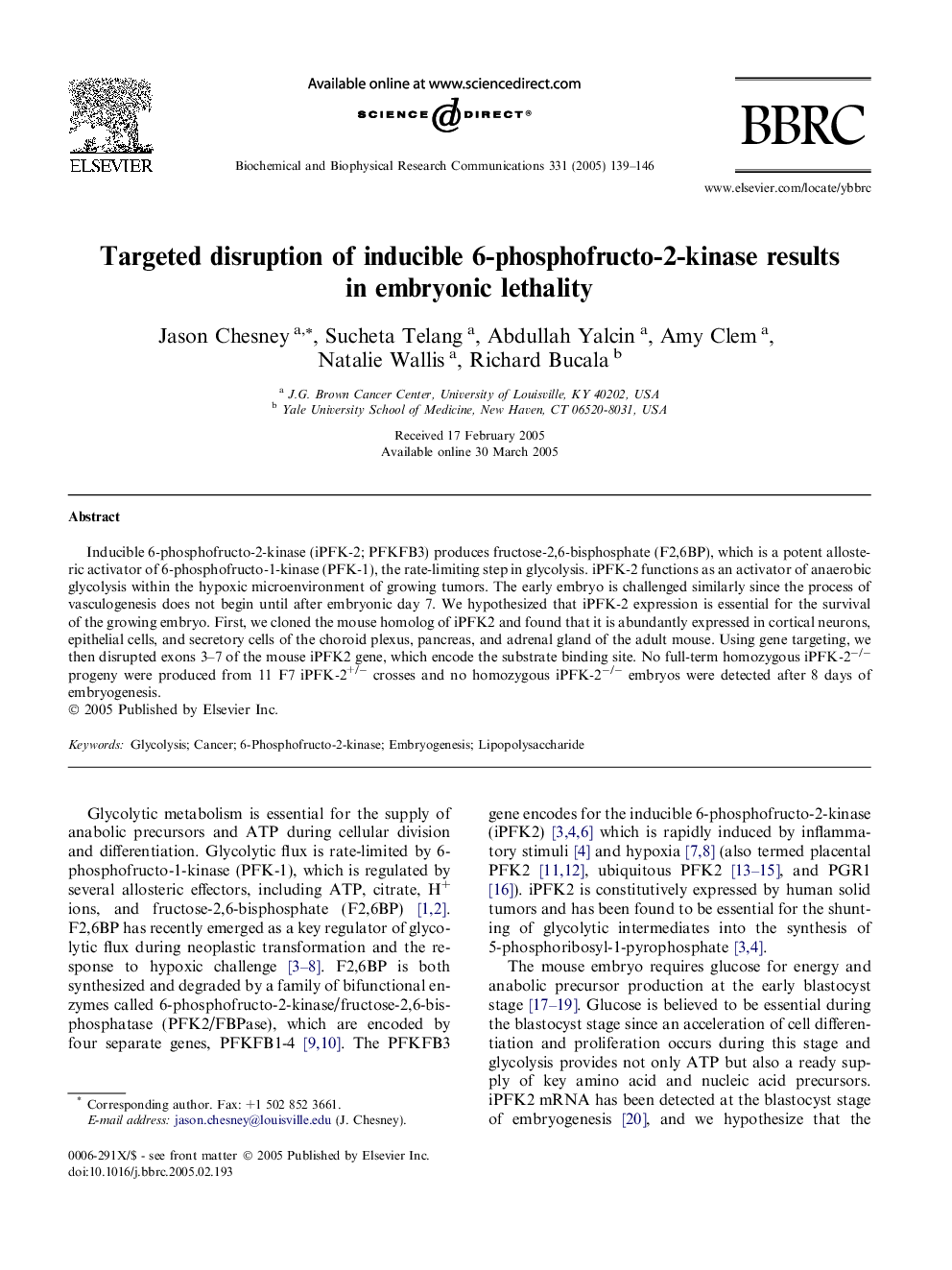| Article ID | Journal | Published Year | Pages | File Type |
|---|---|---|---|---|
| 10771351 | Biochemical and Biophysical Research Communications | 2005 | 8 Pages |
Abstract
Inducible 6-phosphofructo-2-kinase (iPFK-2; PFKFB3) produces fructose-2,6-bisphosphate (F2,6BP), which is a potent allosteric activator of 6-phosphofructo-1-kinase (PFK-1), the rate-limiting step in glycolysis. iPFK-2 functions as an activator of anaerobic glycolysis within the hypoxic microenvironment of growing tumors. The early embryo is challenged similarly since the process of vasculogenesis does not begin until after embryonic day 7. We hypothesized that iPFK-2 expression is essential for the survival of the growing embryo. First, we cloned the mouse homolog of iPFK2 and found that it is abundantly expressed in cortical neurons, epithelial cells, and secretory cells of the choroid plexus, pancreas, and adrenal gland of the adult mouse. Using gene targeting, we then disrupted exons 3-7 of the mouse iPFK2 gene, which encode the substrate binding site. No full-term homozygous iPFK-2â/â progeny were produced from 11 F7 iPFK-2+/â crosses and no homozygous iPFK-2â/â embryos were detected after 8 days of embryogenesis.
Related Topics
Life Sciences
Biochemistry, Genetics and Molecular Biology
Biochemistry
Authors
Jason Chesney, Sucheta Telang, Abdullah Yalcin, Amy Clem, Natalie Wallis, Richard Bucala,
